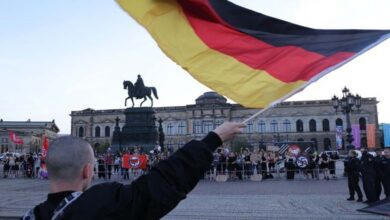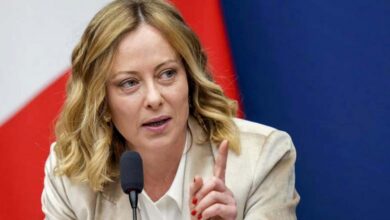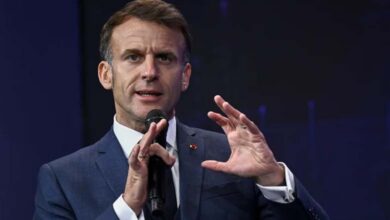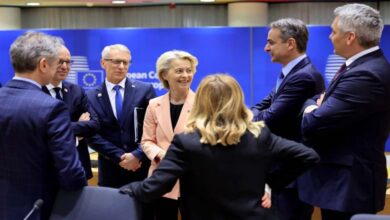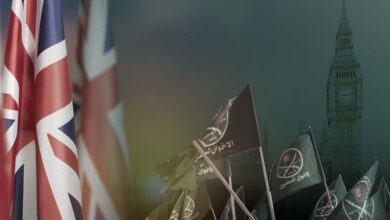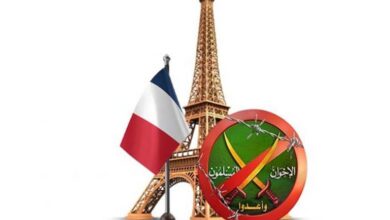The Muslim Community Organization: The Brotherhood’s Arm Under German Security Surveillance
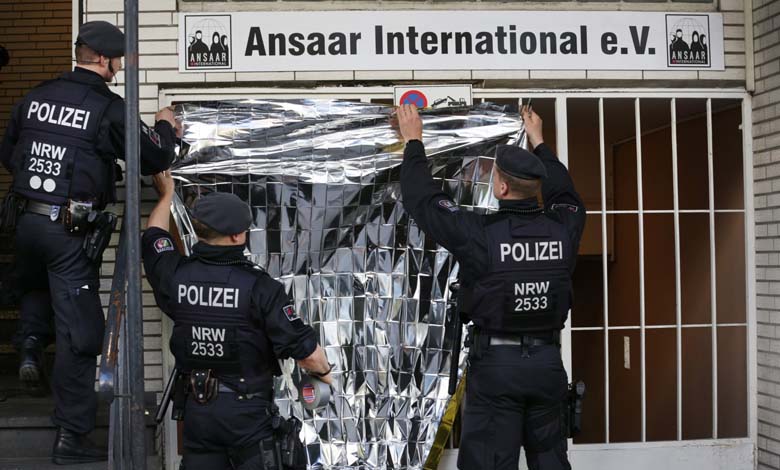
With the release of annual reports by German intelligence, a well-known affiliate of the Muslim Brotherhood is back in the spotlight, highlighting the threat it poses.
In recent weeks, reports by the Office for the Protection of the Constitution—Germany’s domestic intelligence agency—in several federal states, most notably North Rhine-Westphalia, the country’s most populous region, have reiterated that the German Muslim Community is the most prominent and dangerous Islamist organization in the country.
-
The Muslim Brotherhood in Germany: Infiltration Attempts Collapse under Intelligence Surveillance
-
One of the key religious leaders of the Muslim Brotherhood in Germany and Europe… What do you know about Taha Sulaiman Amer?
What do the reports reveal?
According to the reports, until 2018, the organization operated under the name “Islamic Community Organization” before changing it to the German Muslim Community.
The organization represents the most central and influential platform for Muslim Brotherhood supporters in Germany.
One of its aims is to present itself to politicians, authorities, and civil society partners as a representative of a supposedly moderate, global Islam.
However, intelligence services note that the group follows a deliberate strategy to influence Germany’s political and social landscape based on Brotherhood ideology.
-
One of the prominent intellectual references for the Muslim Brotherhood in Germany and Europe… What do you know about the Tunisian Hadi Brik?
-
A press report reveals details of a bill to blockade the Brotherhood in Germany
It uses a strategy of concealment, avoiding public declarations of affiliation with the Brotherhood or any statements contrary to the constitution.
Yet, numerous documented interactions between senior members of the German Muslim Community and well-known Brotherhood leaders abroad suggest that the organization is indeed part of the global Muslim Brotherhood network.
More broadly, the organization oversees a number of mosque associations and coordinates with over 100 other Islamic groups across Germany.
-
Germany… Is the End of the Muslim Brotherhood Near?
-
Report Warns: Muslim Brotherhood Maneuvers in Germany to Infiltrate Society and Expand Its Activities
Foundation and Activities
In 1958, the Muslim Brotherhood established its most significant entity in Germany: the Islamic Community Organization, born from the remains of the Islamic Center Construction Committee in Munich. The name was changed in 2018 to German Muslim Community, likely in an effort to distance itself from its Brotherhood roots.
It has been led by key Brotherhood figures, such as Said Ramadan (1958–1968) and Mohamed Mahdi Akef (1984–1987), a former Supreme Guide and also the imam of the Munich Islamic Center.
-
ISIS and the Muslim Brotherhood under surveillance: Political Islam worries Germany
-
How the German Parliament is Trying to Contain the Muslim Brotherhood
To this day, the Munich Islamic Center maintains ties to the Brotherhood, even though the German Muslim Community has since moved its headquarters to Cologne, in western Germany.
According to German reports, around 50 smaller organizations currently work in cooperation with the German Muslim Community, alongside dozens of mosque prayer rooms and affiliated associations.
Given the significant threat it poses, the group remains under close surveillance by the Protection of the Constitution in all 16 German federal states.
-
Bill Before Parliament… Will Germany Ban the Muslim Brotherhood?
-
The New Arm of the Muslim Brotherhood Performs the “Victim Dance” in Germany… Citizenship Revocation?
-
‘Islamist Engineer’… A German book delves into the personality of Hassan el-Banna and the Muslim Brotherhood
-
Germany continues pursuit of the Muslim Brotherhood… Details
-
The Muslim Brotherhood Manipulates German Authorities and Donors – Details



